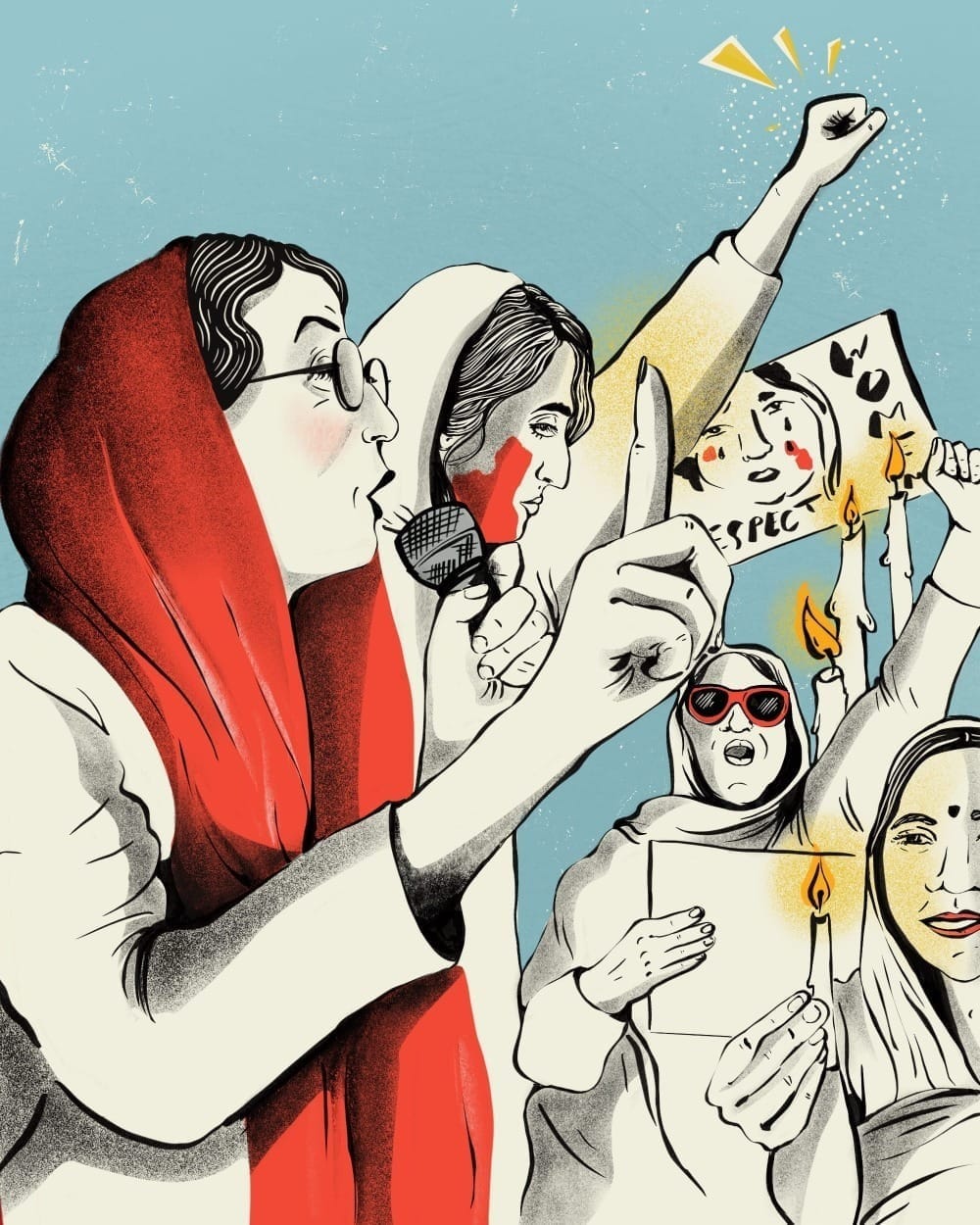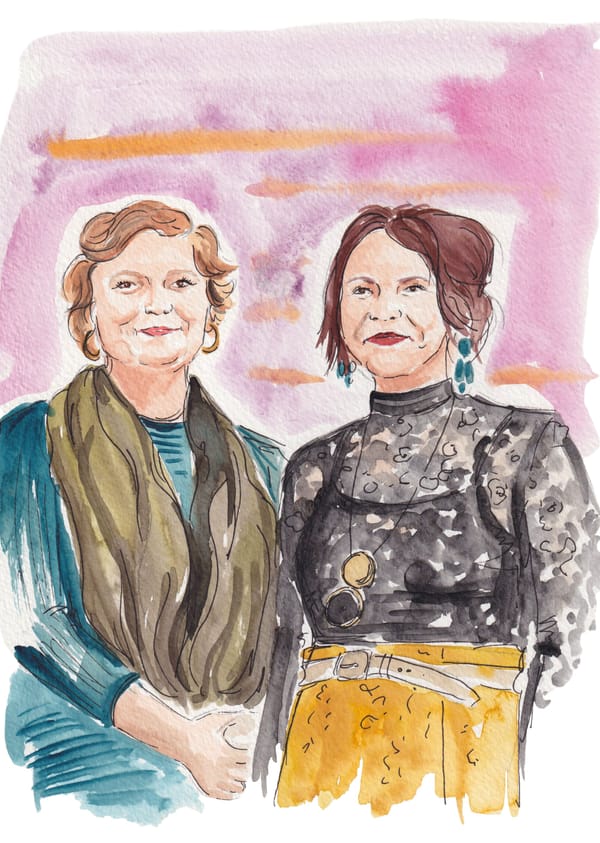‘If We Don’t, Who Will?’—How Women in Afghanistan Are Speaking Out
It is dangerous to protest in Afghanistan. But it is also dangerous to be a woman. That’s what keeps Afghan women speaking out in whatever ways they can.

The Persistent is available as a newsletter. Sign up here to get it delivered to your inbox.
On the morning of Sept. 11, 2024, a handful of women marched down a street in Kabul. They formed a tight-knit huddle, their faces hidden behind masks. The women were protesting the Taliban, the extremist insurgent group that seized control of Afghanistan after the U.S. pulled out its troops in 2021. It was the first protest of its kind in over a year.
The women had chosen to hold their protest on a day of historic significance to Afghanistan: The Sept. 11 attacks in the U.S. triggered events that started the U.S.’s war in Afghanistan, and the idea here was to draw attention to the “forgotten victims of the events of September 11” according to one of the organizers—that is, the women of Afghanistan.
The protesters held aloft small signs in Persian and even though their voices quavered, they chanted over and over, in unison:
“Women’s rights are equal to men’s rights.”
“A voice to liberation: education, work, freedom.”
“The Taliban is committing crimes.”
“The Taliban should be condemned.”
The protest may have been small—in terms of size it couldn’t hold a candle to recent manifestations that have made the front page, like the millions who marched for victims of rape in India or those who have poured out for women’s rights in Iran—but it was significant. Why? Mostly because women speaking out like this, boldly and loudly and publicly, isn’t supposed to happen under Taliban rule. But it did.





